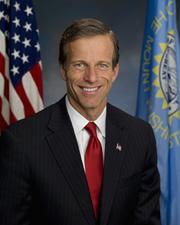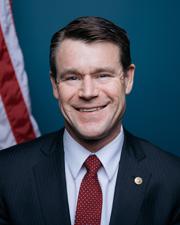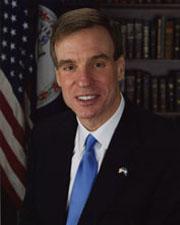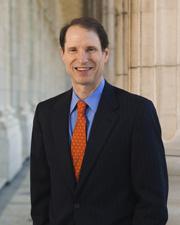0
0
0
Pallone-Thune Telephone Robocall Abuse Criminal Enforcement and Deterrence Act
11/1/2022, 2:17 PM
Congressional Summary of S 151
Pallone-Thune Telephone Robocall Abuse Criminal Enforcement and Deterrence Act or the Pallone-Thune TRACED Act
This bill establishes rules and requirements to deter criminal robocall violations.
Specifically, the Federal Communications Commission (FCC) must
- require voice service providers to develop call authentication technologies;
- initiate a rulemaking to protect a subscriber from receiving unwanted calls or texts from a caller using an unauthenticated number;
- establish when a provider may block a voice call based on information provided by the call authentication framework, but also establish a process to permit a calling party adversely affected by the framework to verify the authenticity of their calls;
- streamline the ways in which a private entity may voluntarily share information with the FCC relating to a call or text message that violates robocall restrictions;
- determine whether its policies regarding access to number resources could be modified to help reduce access to numbers by potential robocall violators;
- report on the implementation of the reassigned number database;
- implement consumer protections for exempted classes of robocalls;
- ensure opt-out/opt-in robocall blocking services provide transparency and redress options for consumers and callers with no additional line item charge to consumers or additional charge to callers for resolving complaints related to erroneously blocked calls;
- study whether to require a provider of a Voice over Internet Protocol (VoIP) service to give the FCC its contact information and retain a record of each call transmitted over the VoIP service that is sufficient to trace a call back to its source;
- provide the Department of Justice with any evidence obtained suggesting a robocall violation made with an intent to defraud or cause harm;
- protect called parties from one-ring scams (where a caller allows the call to ring for a short duration to prompt the called party to return the call and incur charges);
- establish a registration process for a single consortium that conducts private-led efforts to trace back the origin of suspected unlawful robocalls; and
- establish the Hospital Robocall Protection Group to issue best practices for combating unlawful robocalls made to hospitals, helping hospitals protect themselves, and assisting federal and state governments to combat such calls.
The bill also implements a forfeiture penalty for violations (with or without intent) of the prohibitions on certain robocalls.
Read the Full Bill
Current Status of Bill S 151
Bill S 151 is currently in the status of Bill Introduced since January 16, 2019. Bill S 151 was introduced during Congress 116 and was introduced to the Senate on January 16, 2019. Bill S 151's most recent activity was Became Public Law No: 116-105. as of December 30, 2019
Bipartisan Support of Bill S 151
Total Number of Sponsors
1Democrat Sponsors
0Republican Sponsors
1Unaffiliated Sponsors
0Total Number of Cosponsors
84Democrat Cosponsors
42Republican Cosponsors
40Unaffiliated Cosponsors
2Policy Area and Potential Impact of Bill S 151
Primary Policy Focus
Science, Technology, CommunicationsPotential Impact Areas
- Administrative law and regulatory procedures
- Civil actions and liability
- Congressional oversight
- Department of Justice
- Executive agency funding and structure
- Federal Communications Commission (FCC)
- Fraud offenses and financial crimes
- Government studies and investigations
- Internet and video services
- Internet, web applications, social media
- Marketing and advertising
- Right of privacy
- Telephone and wireless communication
Alternate Title(s) of Bill S 151
Pallone-Thune Telephone Robocall Abuse Criminal Enforcement and Deterrence Act
TRACED Act
TRACED Act
Telephone Robocall Abuse Criminal Enforcement and Deterrence Act
Telephone Robocall Abuse Criminal Enforcement and Deterrence Act
Telephone Robocall Abuse Criminal Enforcement and Deterrence Act
TRACED Act
Pallone-Thune Telephone Robocall Abuse Criminal Enforcement and Deterrence Act
Pallone-Thune TRACED Act
Pallone-Thune Telephone Robocall Abuse Criminal Enforcement and Deterrence Act
TRACED Act
Telephone Robocall Abuse Criminal Enforcement and Deterrence Act
Pallone-Thune Telephone Robocall Abuse Criminal Enforcement and Deterrence Act
Pallone-Thune TRACED Act
Pallone-Thune TRACED Act
A bill to deter criminal robocall violations and improve enforcement of section 227(b) of the Communications Act of 1934, and for other purposes.
Comments
Sponsors and Cosponsors of S 151
Latest Bills
ESTUARIES Act
Bill HR 3962December 13, 2025
Federal Maritime Commission Reauthorization Act of 2025
Bill HR 4183December 13, 2025
National Defense Authorization Act for Fiscal Year 2026
Bill S 1071December 13, 2025
Enduring Justice for Victims of Trafficking Act
Bill S 2584December 13, 2025
Technical Corrections to the Northwestern New Mexico Rural Water Projects Act, Taos Pueblo Indian Water Rights Settlement Act, and Aamodt Litigation Settlement Act
Bill S 640December 13, 2025
Incentivizing New Ventures and Economic Strength Through Capital Formation Act of 2025
Bill HR 3383December 13, 2025
BOWOW Act of 2025
Bill HR 4638December 13, 2025
Northern Mariana Islands Small Business Access Act
Bill HR 3496December 13, 2025
Wildfire Risk Evaluation Act
Bill HR 3924December 13, 2025
Energy Choice Act
Bill HR 3699December 13, 2025





